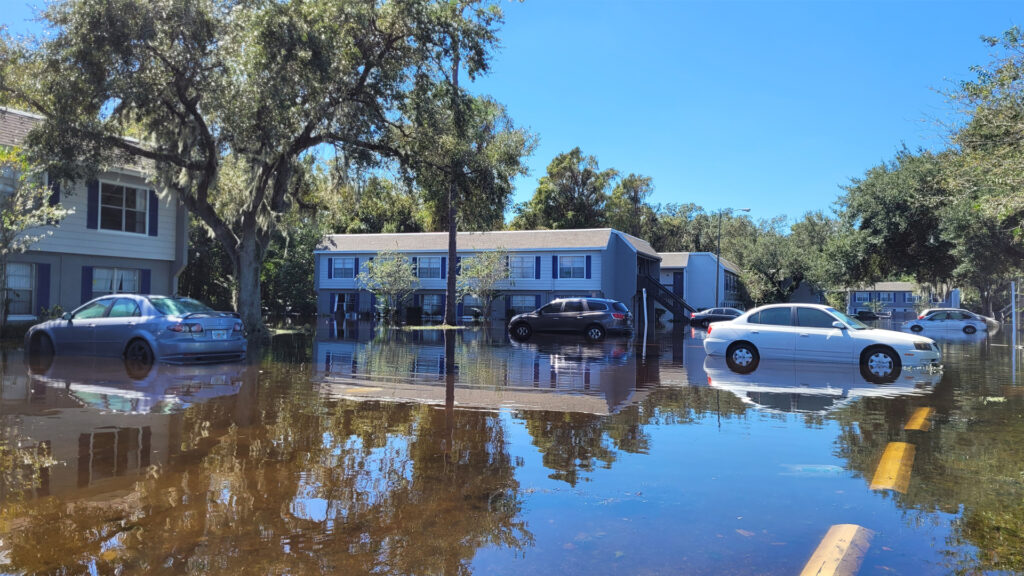By Josiah Neeley, R Street Institute
The climate in Florida is changing — in a political sense. Long considered a purple state, the last decade has seen Florida move more firmly into the red camp, with electoral results and legislative actions tending to favor conservatives on a wide variety of issues.

At the same time, Florida remains uniquely vulnerable among U.S. states to the weather-related type of climate. Hurricanes, storms and flooding have long been a fact of life in the state, and current projections suggest that these sorts of extreme weather events may become more damaging in years to come. Projected rises in sea level will exacerbate stress on a variety of Florida systems, increasing the damage from floods and storms and potentially contaminating some groundwater supplies.
According to a common stereotype, these two trends should together spell disaster for the state, as conservative government is allegedly incapable of dealing with climate risk in a sensible manner. Luckily, this stereotype is wrong. In fact, a conservative approach to climate issues, with a focus on fiscal responsibility and non-governmental initiatives, can do a better job of protecting the state from extreme weather than the typically liberal approaches of more regulation and runaway spending.
A key example has to do with what is known as “natural infrastructure.” This refers to the natural features of the environment that help to reduce the risk from flooding, storms or other extreme weather events. Rather than spending billions to build dams and flood walls, natural infrastructure can be used to achieve the same goal at a much lower cost. For example, research indicates that wetlands and marshes absorb storm surges, which prevents or reduces flooding. A mere 15 feet of marsh can absorb as much as half of the energy of incoming waves.
Natural infrastructure not only does a good job of protecting areas from flood and storm damage but is often less likely to suffer damage from storms itself. A study of Hurricane Irene in North Carolina found that around three-quarters of bulkheads in the central Outer Banks sustained storm damage requiring repairs, while protective wetland areas were undamaged.
Of course, natural infrastructure won’t work as a solution for all extreme weather risks. But it ought to be considered as an alternative to expensive infrastructure projects where it is feasible. A model for this is Louisiana, where in 2016, after repeatedly suffering devastating storms, the state decided to revamp its storm planning and response process. The end result was the Louisiana Watershed Initiative, which replaced the previous system of multiple, often overlapping agencies and organizations with a unified approach that explicitly incorporates natural infrastructure into its planning and mitigation strategies.
It is also important to ensure that existing natural infrastructure is not being inadvertently degraded. Government development subsidies can result in the degradation of natural infrastructure resources, leaving communities more vulnerable. Restricting development is certainly not the answer, but government shouldn’t be paying to encourage this either.

At the federal level, the Reagan-era Coastal Barrier Resources Act prevents federal subsidies from being used for development in 3.5 million acres of wetlands, barrier islands and other environmentally sensitive areas in Florida and throughout the United States. Similar restrictions should apply to state-level subsidies, such as eligibility for the Citizens Property Insurance Corporation’s flood insurance program, with new development in areas where natural infrastructure is providing protection against damage from extreme weather.
Conservatives can respond to climate in a way that doesn’t involve intrusive government regulation or unaffordable spending programs. Florida should seize the opportunity to show that conservative policymaking is not only up to the task of addressing this issue but can produce stronger policy ideas than the stale solutions so far offered by the left.
Josiah Neeley, of Austin, Texas, is a resident senior fellow for energy policy at the R Street Institute, a public policy think tank supporting free markets and limited, effective government.
This opinion piece was originally published by the Sun Sentinel, which is a media partner of The Invading Sea. Sign up for The Invading Sea newsletter by visiting here.




While many in Florida would agree with a number of these measures, adaptation initiatives are only part of the answer – we also need to address mitigating the emissions of greenhouse gases to prevent exponentially increasing climate dangers like sea level rise. You can build the best natural or man-made barriers in the world, but if the sea keeps rising due to continued warming, these will only offer temporary respite.
Restoring and saving wetlands will have a gigantic impact on carbon capture and against flooding and of course help with cleaning our waters. There is no reason why conservatives and liberals wouldn’t agree with living shorelines and all the natural ways to help save our state from the large pollution it is now faced with in its waters. We are number one in the most acreage of polluted lakes too polluted to swim in our sustain aquatic life, 80% of our springs are impaired due to excessive nitrogen, nearly a million acres of coastal estuaries and 9000 miles of rivers and streams are impaired with fecal bacteria. Definitely time for action before it is really too late for our physical and economic health.
This is a very hopeful message, that there are conservatives willing to lead on climate change issues. We’ll all be facing these issues no matter what our political affiliation, and I welcome the introduction of conservative policy ideas to the challenges of reducing greenhouse gases and preparing for climate impacts.
I welcome rational and thoughtful discussions about tackling climate change with people who consider themselves conservative. However, Josiah, when your message ends with and is peppered throughout with casting aspersions onto the “left”, your message falls flat. The left has been at the table wondering when the right will show up with a genuine desire to move forward on the important topic of climate change.